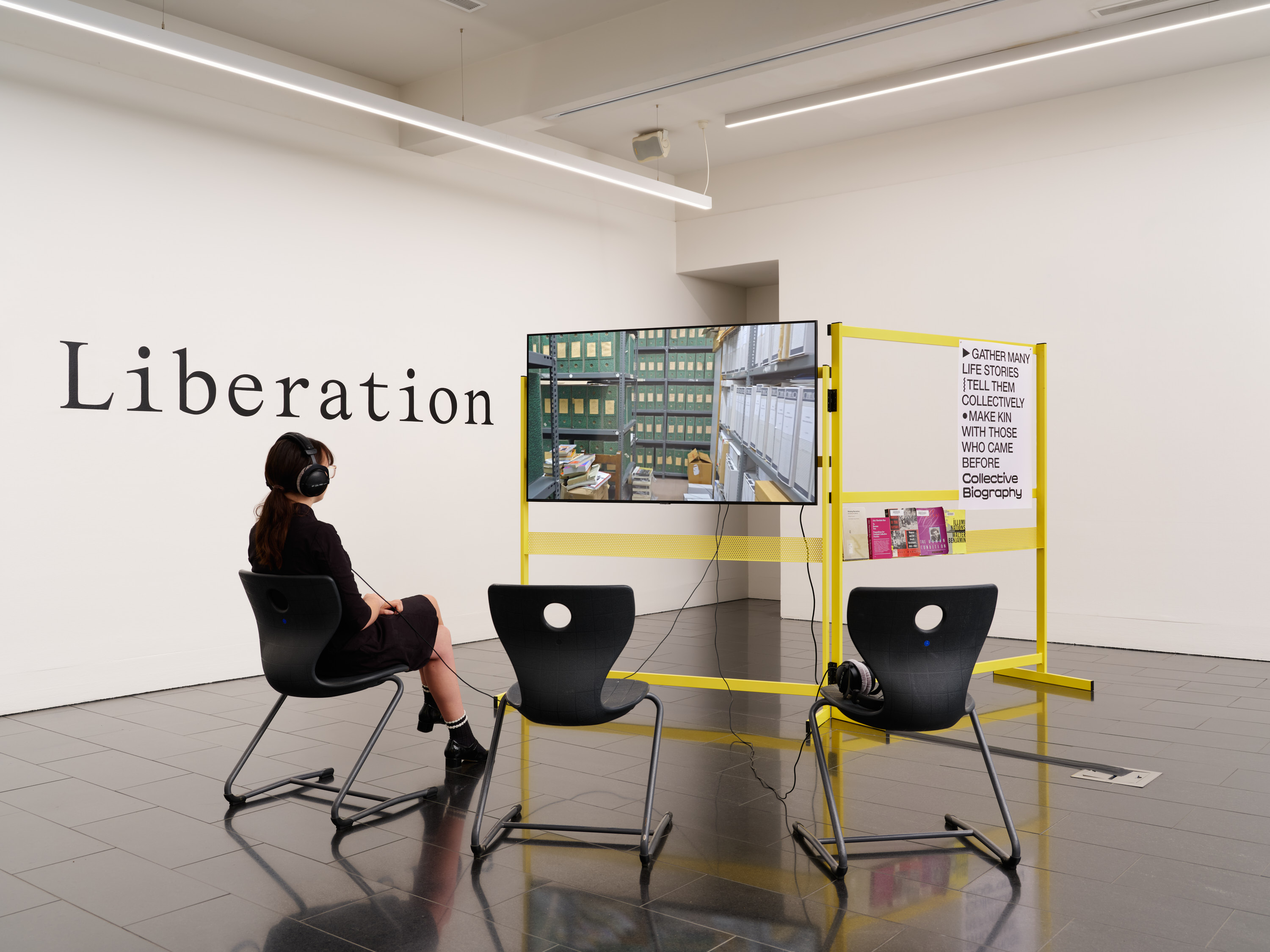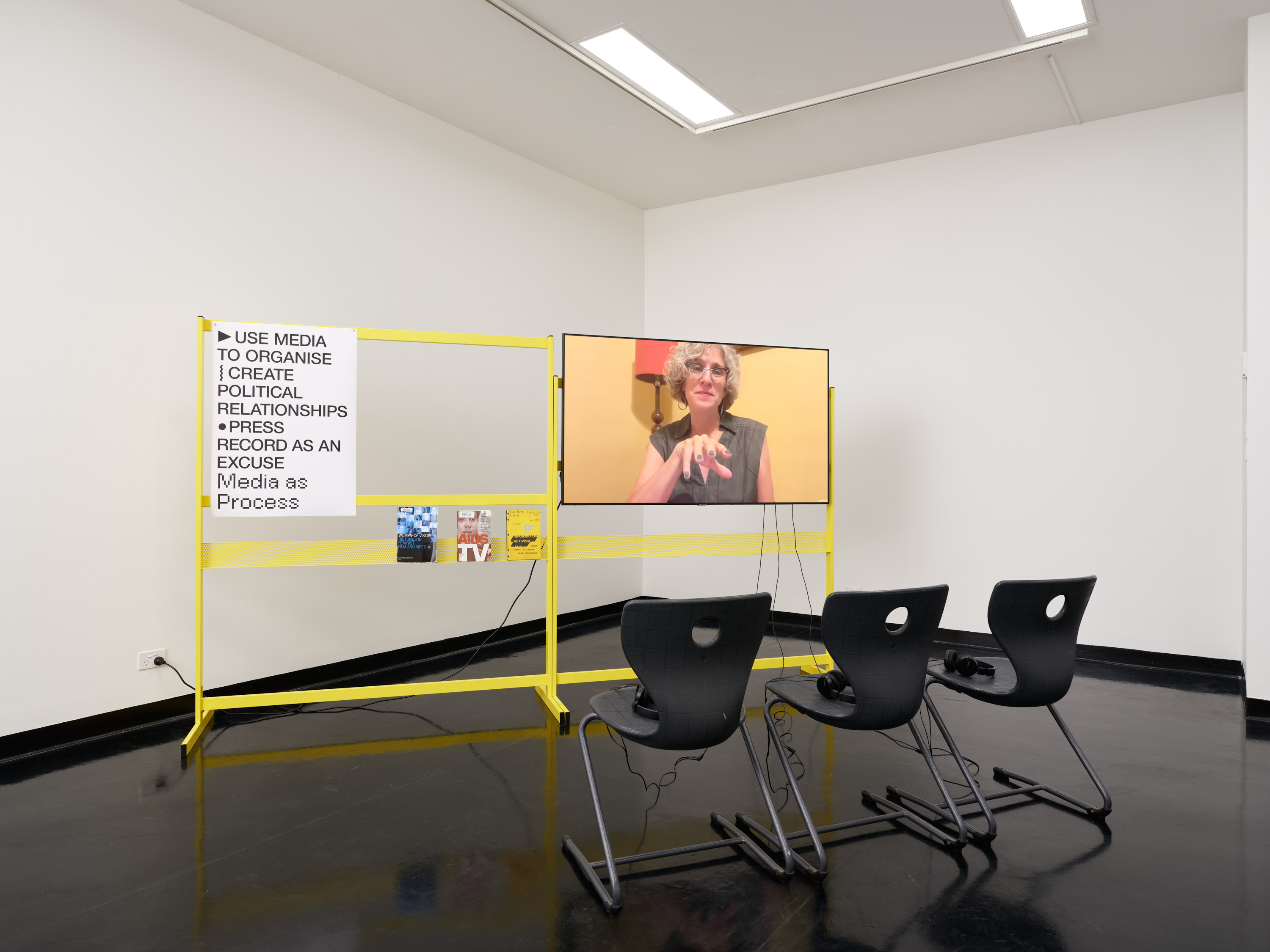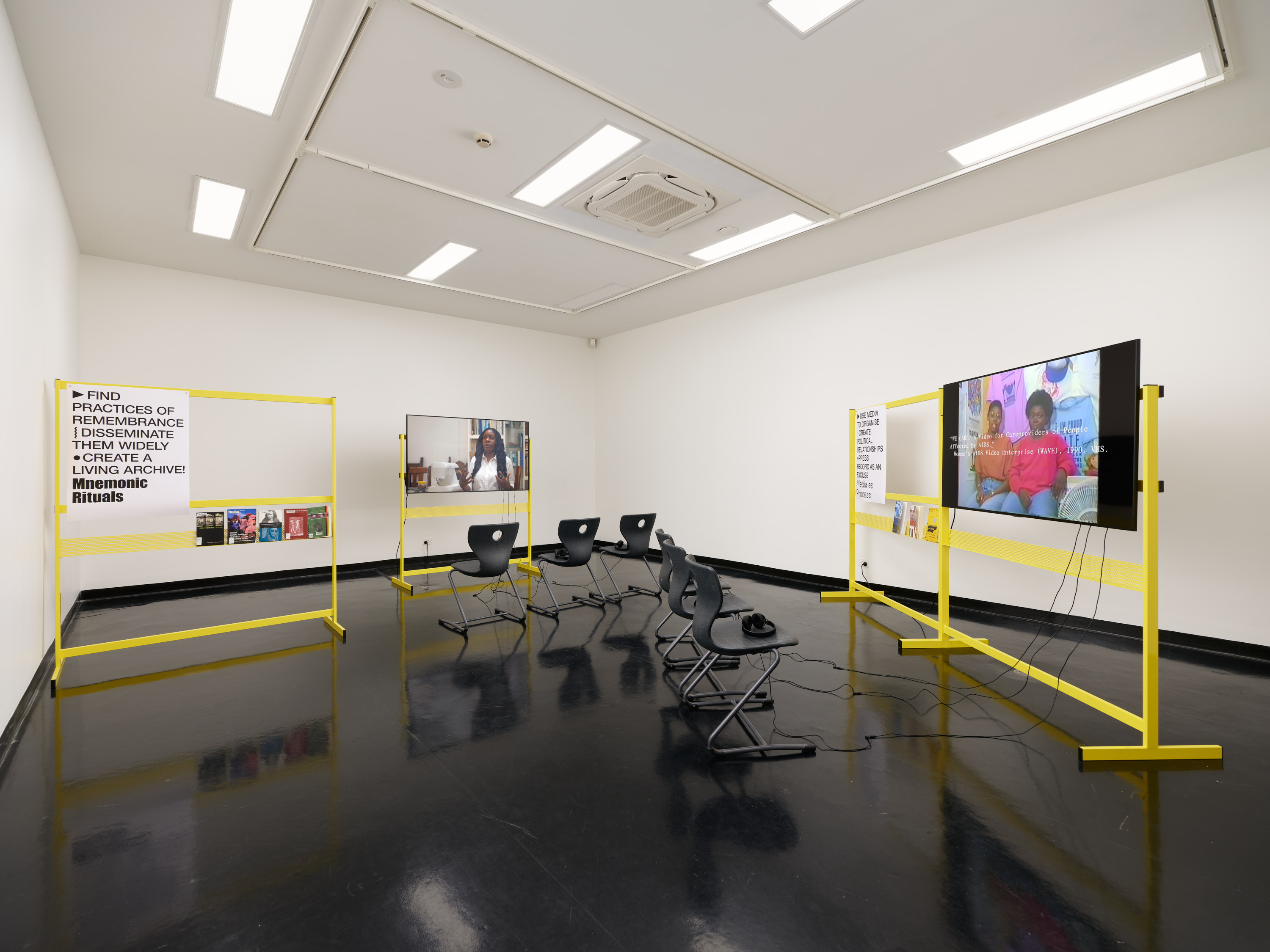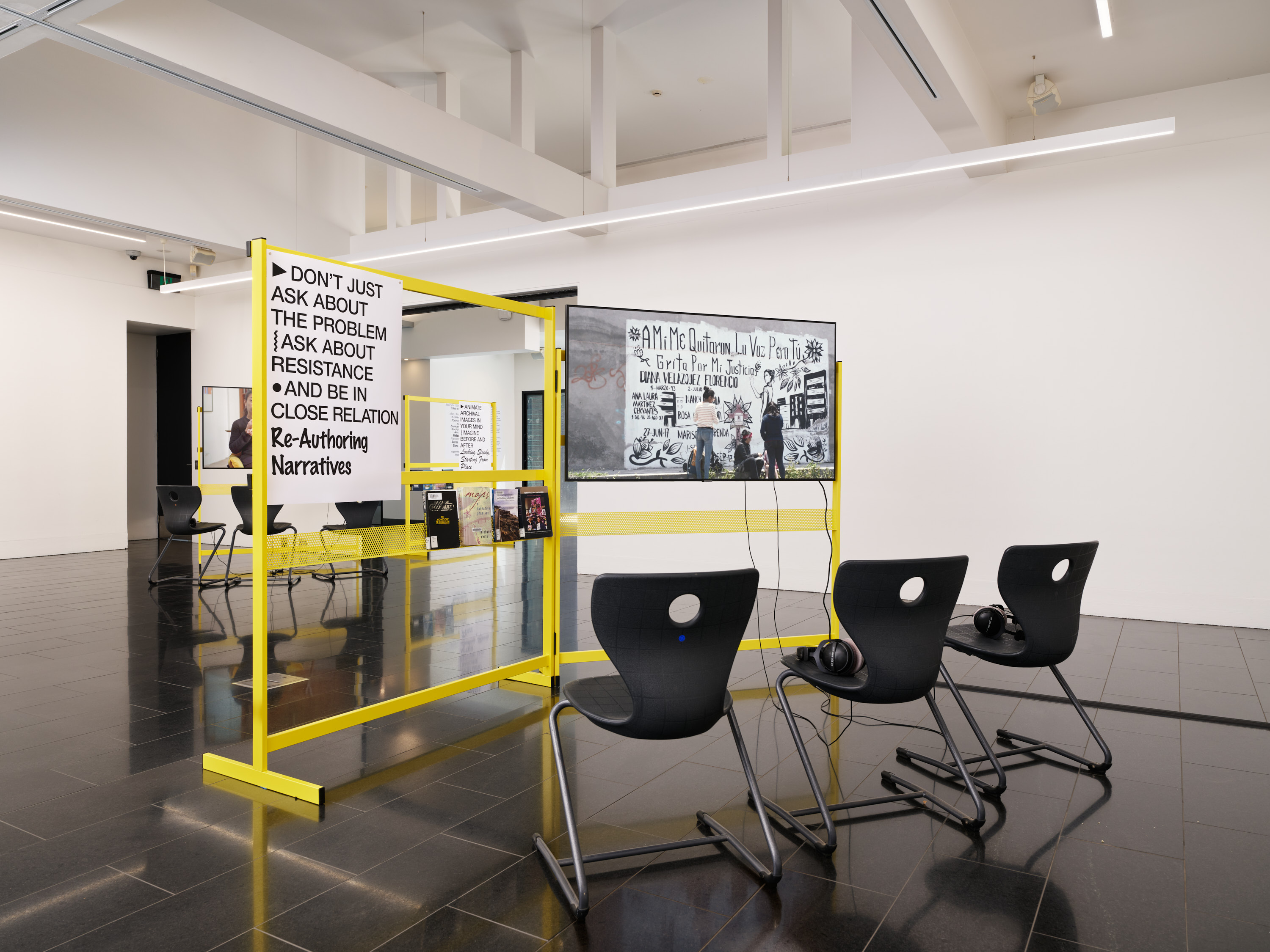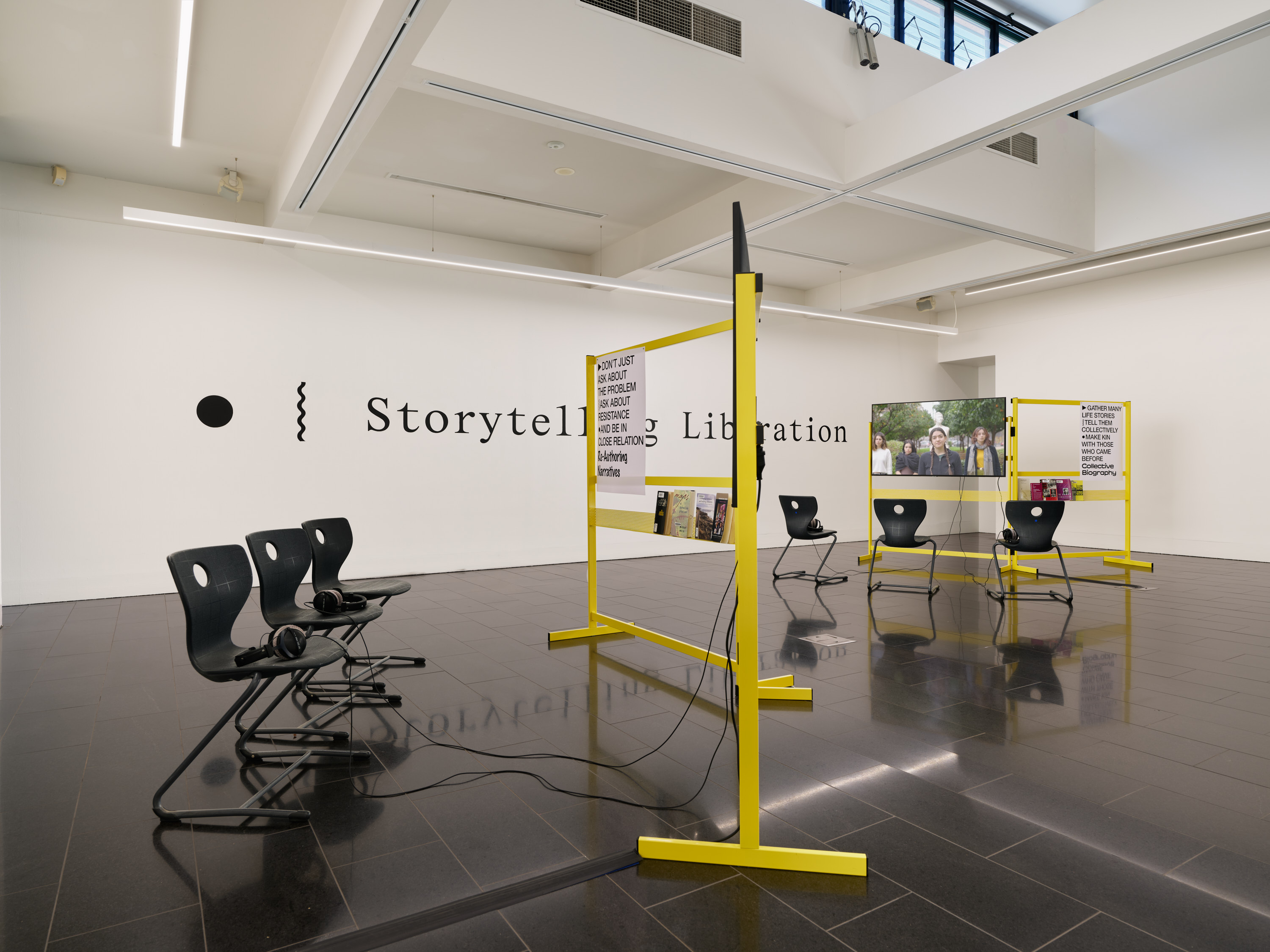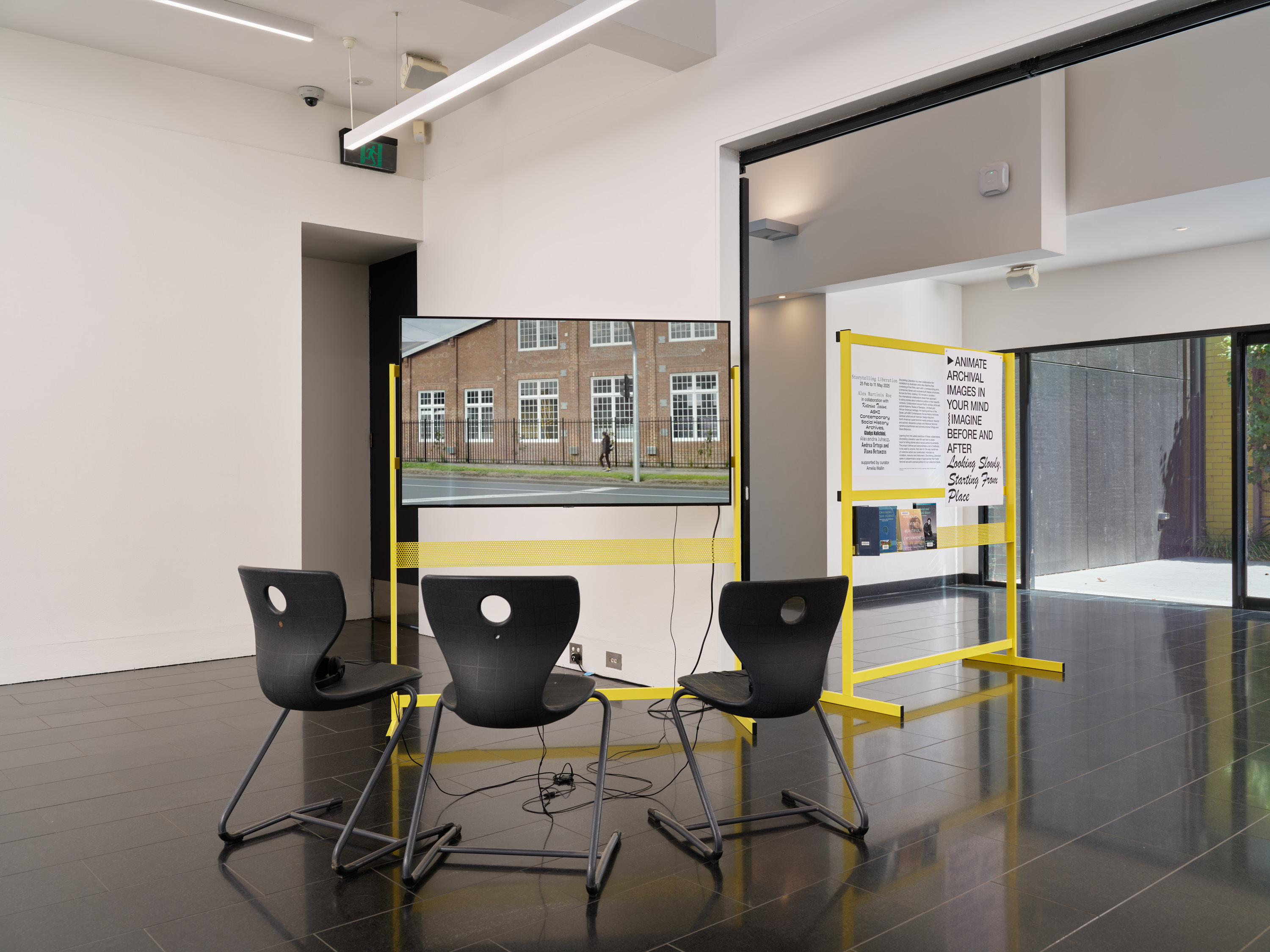Storytelling Liberation
Alex Martinis Roe in collaboration with Katerina Teaiwa, ASKI Contemporary Social History Archives, Gladys Kalichini, Alexandra Juhasz, Andre Ortega and Diana Betanzos. Supported by curator Amelia Wallin
Storytelling Liberation is a new video installation by Australian artist Alex Martinis Roe, and her first major exhibition in regional Victoria. Across five videos, each approximately 20 minutes in duration, the exhibition fosters international anti-colonial and feminist alliances by sharing tools for telling stories about social justice movements. For Martinis Roe, who has long focused on networks of solidarity, sharing methods of doing history has the potential to contribute to liberation; building what she calls ‘solidarity-in-difference’ and creating alliances among different positionalities.
Begun in 2022, Martinis Roe’s research led her to develop relationships with five international collaborators, including scholar, artist and activist Katerina Teaiwa of Banaban, I-Kiribati and African American heritage; ASKI Contemporary Greek Social History Archives in Athens; Zambian artist and art historian Gladys Kalichini; North American queer-feminist media producer, theorist and activist, Alexandra Juhasz; and Mexico City-based narrative practitioners and activists Andrea Ortega and Diana Betanzos. Learning from their varied practices, this exhibition defines and demonstrates a set of methods to research and tell stories about liberation movements.
Looking Slowly, Starting from Place explores Pacific scholar and activist Katerina Teaiwa’s way of looking slowly at archival photographs to uncover Banaban resistance against phosphate mining in the 20th Century.
Collective Biography documents how ASKI, the leading archive of the Greek Left, undertook a collective process of making public history about the lives of women in the European Resistance in WWII and afterwards, in collaboration with 40 history students from across Europe.
Mnemonic Rituals demonstrates how Gladys Kalichini, a Zambian artist and art historian, works with rituals to remember the significant participation of women in the decolonial revolutions in Zambia and Zimbabwe in the 1960’s.
Media as Process presents the feminist media methods Alexandra Juhaszdeveloped within the community video movement in 1990’s New York City to collectively address how women of colour have been affected by AIDS.
Re-Authoring Narratives explores activistsAndrea Ortega and Diana Betanzos’use of narrative practices to document the movement against femicide on the periphery of Mexico City and how they build cultures of resistance through choosing which questions they ask, listening carefully and retelling stories in ways that make people stronger.
The exhibition is framed by a graphic identity produced in collaboration with Swiss designer Vela Arbutina.
The exhibition is made accessible to diverse publics through public programs, including a lecture and workshop by Alex Martinis Roe and a film screening program of video and film works by the project collaborators, with dates to be announced.
Read more about the individual films in the exhibition through the wall labels [PDF 106.3 KB].
All photographs courtesy of Christo Crocker
